If I had to guess, you’ve probably already skipped past this part and are now scrolling through the actual list. I can’t say I blame you, because I’d probably do the same thing. I should just be thankful you’re even here! But if you are in fact taking the time to read this part, this is where I offer the usual disclaimer: This is not a definitive list by any means. These may not necessarily be the “best” movies that hit theaters in the last year, but they were certainly the ones that I liked the most.
With that out of the way, here are my Top 10 Movies of 2018.
10. Leave No Trace. Eight years ago, when director Debra Granik was last behind the camera, she introduced the world to the potential of Jennifer Lawrence, effectively launching her career. I can only hope that we’ll be saying the same about Thomasin McKenzie a decade from now. Leave No Trace sees the 18-year-old actress more than holding her own against 39-year-old actor Ben Foster, as a young girl who lives in a public park with her father, a traumatized military veteran who resists the prescribed order of what the rest of the world would consider to be civilized society. When social services force them to live in a traditional home and McKenzie’s character, Tom, has a chance to experience a life outside of what her father has provided for her, she begins to come to terms with the heartbreaking reality that living a fulfilling life and living with her father might be mutually exclusive.
Leave No Trace leans less on the standard “fish out of water” tropes — there are no scenes of Tom struggling to perform mundane everyday activities — and focuses instead on how comfortable Tom actually feels when she has a chance to engage with people who aren’t her father. She is certainly naive about certain aspects of the world, but mature and confident enough to push back against her father when it becomes increasingly clear that his problems have blinded him to the needs of her well-being. It’s all building to an inevitable but nonetheless devastating conclusion that would not have landed with as much emotional impact if not for the powerful performances of McKenzie and Foster.
Writer(s): Debra Granik & Anne Rosellini
Director(s): Debra Granik
9. Widows. There is a scene in Widows where Colin Farrell’s alderman candidate, running for a seat being vacated by his belligerent and demanding father, holds a campaign event in a downtrodden neighborhood on the South Side of Chicago. Badgered by a reporter with questions related to reports of corruption while he is on a stage reciting platitudes about supporting minority women workers, Farrell eventually makes his escape, riding to his campaign headquarters in the backseat of a town car. The camera, perched on the hood of the car, never averts its gaze from the surrounding neighborhoods, using a single continuous shot to observe the changing landscape. As Farrell delivers a rant from inside the car, the dilapidated buildings of the South Side area are replaced, in the span of few minutes, by affluent homes.
It’s no more than a couple minutes long, but it is brilliant visual storytelling that captures the segregation of Chicago and the nature of the city’s politics, where the people in power often have nothing in common with the people they are supposed to represent. Race, class, and politics are but of a few subjects that Widows is interested in exploring. It’s less a “heist film,” and more of a film with a heist in it. Viola Davis leads a trio of widows who find themselves in the crosshairs of an alderman candidate, running against Farrell. He was robbed by their now departed husbands and is demanding reparations from the wives they left behind. It’s an opportunity for each of them to seize control of their life and wrestle free from the grip of men who seem to dominate their lives even from the grave.
Davis, as always, is outstanding, but she is surrounded by an impeccable cast that includes Farrell, Elizabeth Debicki, Liam Neeson, Michelle Rodriguez, Cynthia Erivo, Brian Tyree Henry, Daniel Kaluuya, and Robert Duvall. No casting opportunity is wasted, with the likes of Jon Bernthal and Carrie Coon filling in for minor roles that would otherwise be an afterthought.
Writer(s): Gillian Flynn & Steve McQueen
Director(s): Steve McQueen
8. Bad Times At The El Royale. In the late 60s, seven strangers gather at an eccentric motel that straddles the state line between California and Nevada. Each of the motel guests is each guarding a secret, some carrying with them baggage that is more figurative than literal for a group of wayward travelers. There is a honeymoon suite littered with listening devices, a bag of stolen cash stashed beneath the floorboards of one room, and even a film reel containing scandalous footage of a deceased public figure.
But all of that might as well be window dressing, because Bad Times At The El Royale is entirely character-driven. It’s less concerned with plot devices and more interested in interrogating the inner lives of the collection of people who find themselves holed up in the El Royale on a stormy night. Between Jon Hamm’s fast-talking vacuum salesman and Chris Hemsworth’s charismatic cult leader, the subjects it zeroes in on are Jeff Bridges’ “priest” and Cynthia Erivo’s soul singer. The former is a priest in garb only — hence the quotes — and a man clinging to one last piece of unfinished business from a life interrupted. The latter is a singer at a crossroads in her career, trying to rekindle the passion that her experiences in the industry have all but extinguished. The unexpected bond that forms between the two of them eventually becomes the driving force of the film as it races to a conclusion of bullets, blood, and fire.
Bad Times At The El Royale feels like it belongs to a bygone era of cinema. It’s an old-fashioned character drama that uses noir conventions to examines the lives of seven strangers who prove to be more fascinating than the archetypes they might otherwise be reduced to in a more conventional film.
Writer(s): Drew Goddard
Director(s): Drew Goddard
7. Blindspotting. How this managed to fly under the radar last year, I will never know. Daveed Diggs, who won both a Grammy and a Tony for his dual performances as Marquis de Lafayette and Thomas Jefferson in the original production of the Broadway musical Hamilton, is almost certain to be a star. Mainstream success may have eluded Blindspotting, but I have a feeling people will look back on this film as a signpost for what I’m confident will undoubtedly be a successful acting career.
Diggs’ Collin Hoskins, born and raised in Oakland, is a professional mover in the final three days of his year-long probation. The proverbial light at the end of tunnel is within reach, but as the supervisor of his halfway house warns, “You are a convicted felon, Mr. Hoskins. You are now that until proven otherwise. Prove otherwise at all times.” When one night, while driving the moving truck back to the office, he witnesses a police officer shoot an unarmed black man, the trauma turns Collin inside out, tormented by the realization of just how much of his life hinges on the person that others perceive him to be. His lifelong best friend and coworker — a white man who grew up in the same neighborhoods as Collin — faces perception problems of his own, finding that others assume him to be an interloper pretending to be something he isn’t on the streets of an increasingly gentrified Oakland.
It’s a messy film that makes no attempt to offer easy answers, but Diggs is our guiding light through it all. His empathetic performance is at first subdued before we realize it is building to a show-stopping crescendo, as Collin delivers a breathtaking spoken-word performance that manages to illuminate the dual pressures of being the person holding the gun and the person staring down the barrel.
Writer(s): Rafael Casal & Daveed Diggs
Director(s): Carlos Lopez Estrada
6. Spider-Man – Into The Spider-Verse. Initially, I was not convinced we needed another Spider-Man film, let alone an animated Spider-Man film. From Tobey Maguire to Andrew Garfield to Tom Holland, I’d figured we’d had more than our fill of Peter Parker. Well, Into The Spider-Verse seemed to agree, because Peter Parker is dead within the first 30 minutes. I should clarify: A version of Peter Parker is dead within the first 30 minutes. There is more than one Peter Parker, but there is also more than one Spider-Man — including a girl, a pig, and a robot — and that is where Into The Spider-Verse justifies its existence.
Miles Morales, a mixed race teenager growing up in Brooklyn, takes center stage here, thrust into the role of Spider-Man when a radioactive spider bite — and the aforementioned death of Peter Parker — force him to take up the mantle. He is soon besieged by a colorful cast of more experienced wall-crawlers thanks to a portal between parallel universes that brings a schlubby version of Peter Parker, Gwen Stacy (a.k.a. Spider-Woman), and even Peter Porker (a.k.a. Spider-Ham) into his world. Six web-slingers in total must team up to take down the villainous Kingpin and find safe passage back to their respective universes. It’s a sharp, self-referential, and frequently hilarious story that serves to remind audiences of the message that has defined Spider-Man from the beginning: Anyone can wear the mask.
Considering one of Into The Spider-Verse‘s writers, Phil Lord, also co-wrote The LEGO Movie and co-directed 21 Jump Street and 22 Jump Street — you know, movies that may have initially sounded terrible as a concept before Lord and his collaborator Chris Miller were able to work their magic — I should have seen this coming. Shame on me. I’ll never doubt either of them again.
Writer(s): Phil Lord & Rodney Rothman
Director(s): Bob Persichetti & Peter Ramsey & Rodney Rothman
5. Black Panther. One of the most frequent criticisms that has been levied against the Marvel Cinematic Universe is that each installment feels too episodic and is more concerned with building the franchise than with delivering a film that can stand on its own merits. But where Black Panther succeeds is in world-building of a different sort, introducing us to an entirely new culture to deliver a superhero movie that is unlike anything I’ve seen before. It’s one of the few MCU films that feels entirely like the product of the man behind the camera: Ryan Coogler, a director who deserves to be a household name if he isn’t already.
It feels almost incidental that Black Panther is a “superhero movie,” because the film is more interested in exploring Chadwick Boseman’s T’Challa as a son and as a king. Assuming leadership over the country of Wakanda — and the mantle of Black Panther — in the wake of his father’s death, it is not long before T’Challa feels the weight of that crown. Erik Killmonger, a former black-ops soldier with ties to Wakanda, emerges as a challenger to the throne, championing a philosophy that forces T’Challa to reconsider his place as king and the role that Wakanda occupies in the world.
Michael B. Jordan, who has been something of a good luck charm for Coogler, is perfectly cast as Killmonger, providing ample evidence of what a difference it makes when your villain is as compelling as the hero — something the MCU has sorely lacked up to this point, with few exceptions. What makes Killmonger such a formidable foe is that it is not difficult to imagine him and T’Challa as allies under different circumstances, had their fathers followed different paths. Killmonger is all fire and fury, but an upbringing defined by feelings of betrayal and abandonment is what fuels that fire.
Writer(s): Ryan Coogler & Joe Robert Cole
Director(s): Ryan Coogler
4. A Quiet Place. I’ll admit I’ve become very cynical about the theatrical moviegoing experience. To me, there is no comparison between watching a film on the big screen and watching it on a television screen. The former will never be able to recreate the latter, despite home theater innovations. But when I do go to the theater, I tend to avoid packed theaters if I can, because a bigger audience means more opportunities for people to check their phones or provide their own personal film commentary to their neighbor.
Which is why the experience of seeing A Quiet Place on opening night with a sold-out crowd will be one I’ll never forget — for all the right reasons. For 90 minutes, no one in the audience wanted to be the person to make a sound, as if they too were fearful of alerting the sightless creatures that stalk the Abbott family on screen. You’d think that a largely silent film would only amplify the obnoxious noises that a louder film might otherwise drown out, but not that night. Everyone was on the edge of their seats.
Much of the credit belongs to director, co-writer, and lead actor John Krasinski. A Quiet Place is not his directorial debut, but it might as well have been considering it is a different animal entirely from his first film, The Hollars. Here he crafts a compelling family drama and shows a masterful grasp of how to build tension, managing to weaponize silence in a genre that has long used sound to terrorize audiences. Krasinski also certainly benefits from casting his real-life wife, Emily Blunt, as the matriarch of the Abbott family, a role she makes her own with one of the most harrowing performances of the year.
Writer(s): Bryan Woods & Scott Beck and John Krasinski
Director(s): John Krasinski
3. Hereditary. Writer and director Ari Aster has frequently described Hereditary as a “family tragedy that curdles into a nightmare,” and I can’t think of a more apt description. It’s a film that reminds me a lot of Stephen King’s novel Pet Sematary. Both are about how families cope with death, either as an adult forced to confront years of unresolved emotions being brought to the surface or as a child who has never had to experience loss before. And both grapple with the reality of being at the mercy of forces beyond your control. But the protagonist of Pet Sematary is ultimately undone by horrors of his own making. Whereas in Hereditary the Graham family comes to the horrific realization — only too late — that they’ve been forcibly buckled into a roller coaster ride to Hell, with nowhere to go but down.
It starts with the death of a matriarch. Because of their fraught relationship, her daughter Annie is left to sort through a mix of emotions, at one point even questioning whether she is feeling the appropriate amount of sadness. Then tragedy strikes without warning — an unimaginable loss that fractures the family beyond repair — and suddenly the grief that once felt manageable becomes suffocating, giving way to feelings of anger and resentment. To try and make peace with the cruel hand that fate has dealt her, Annie turns to a support group, only to find herself indulging in the macabre practices of another member who opens the door to a nightmarish turn of events for Annie and her family.
It all hinges on the ability of Toni Collette to capture the raw emotions of a woman coming apart at the seams as circumstances beyond her control cause the walls to close in around her. Collette is no stranger to the horror genre — from 1999’s The Sixth Sense to 2015’s Krampus — and Hereditary plays to her strengths, setting the stage for a riveting (and awards-worthy) performance.
Writer(s): Ari Aster
Director(s): Ari Aster
2. Eighth Grade. I didn’t even have a Facebook account until I was a senior in high school, so I can’t say that I had the same experience growing up as today’s generation of kids who have collectively rolled their eyes at Facebook and Twitter in favor of Snapchat, Instagram, and YouTube. But Eighth Grade makes it clear that the proliferation of cell phones and social media has only amplified the anxieties and insecurities we all experience as pubescent teens — and even as adults.
Writer and director Bo Burnham, a comedian and musician who used self-recorded YouTube videos as a launchpad for his own career, has been open about his own struggles with anxiety. Eighth Grade is an exploration of that anxiety through the eyes of Kayla Day, an awkward and unpopular eighth grader in the final week of middle school. Kayla is fixated on the person she wants to be — pretty, popular, and confident. She possesses enough self-awareness to know her place among the junior high hierarchy — what with her acne, stammering attempts at casual conversation, and solitary lunches — and keeps her well-intentioned single dad at a distance for fear that he’ll realize the ugly truth, that he raised a loser. Her self-recorded YouTube videos, with their almost non-existent viewership, function more as personal pep talks, encouraging her to embrace what makes her unique and be more confident.
It’s a coming-of-age film for the people who grew up thinking they needed to be anybody but who they are — a sad logic only made worse by an already image-conscious society that has become obsessed with carefully crafted, digital versions of our ourselves, scrubbed of all imperfections.
Writer(s): Bo Burnham
Director(s): Bo Burnham
1. The Favourite. Normally, I’m not one for costume dramas. It usually doesn’t take more than a trailer to put me to sleep. But this is not your grandmother’s costume drama, and I’d even go so far as to say it’s not your mother’s costume drama, either. With director Yorgos Lanthimos at the helm, he brings a contemporary sensibility — and a wicked sense of humor that shares kinship with the dry-as-a-bone deadpan of his 2015 relationship satire, The Lobster — to an 18th Century period piece about a duchess (Rachel Weisz) and a servant (Emma Stone) vying for the favor of Queen Anne (Olivia Colman).
Inspired by actual events that transpired in 18th Century Britain, the original script for The Favourite was first written 20 years ago by Deborah Davis, an academic who approached it from a historical perspective by researching that period. Davis was fascinated by the dynamics between Queen Anne, the duchess Lady Sarah Churchill, and the maid Abigail Hill. It’s no surprise then that the strength of The Favourite is in how sketches the three central figures as women doomed by their individual flaws, each capable of “much unpleasantness” but never at the cost of their humanity. Davis and her co-writer, playwright Tony McNamara, were less concerned with making the women likable and more interested in crafting three-dimensional characters. It helps to have actresses of the caliber of Colman, Weisz, and Stone to breathe life into those characters through brilliant and captivating performances.
The humor is what puts it over the top for me. Watching Weisz and Stone trade barbs, each laced with venom and a caustic wit, is the entertainment I never knew I needed.
Writer(s): Deborah Davis and Tony McNamara
Director(s): Yorgos Lanthimos
Just A Bit Outside (in alphabetical order): Anna And The Apocalypse, Annihilation, The Avengers – Infinity War, BlacKkKlansman, Cam, Can You Ever Forgive Me?, Creed II, Deadpool 2, Destroyer, First Man, First Reformed, The Front Runner, Game Night, Halloween, Mission: Impossible – Fallout, Sorry To Bother You, A Star Is Born, Suspiria, Upgrade, and Vice
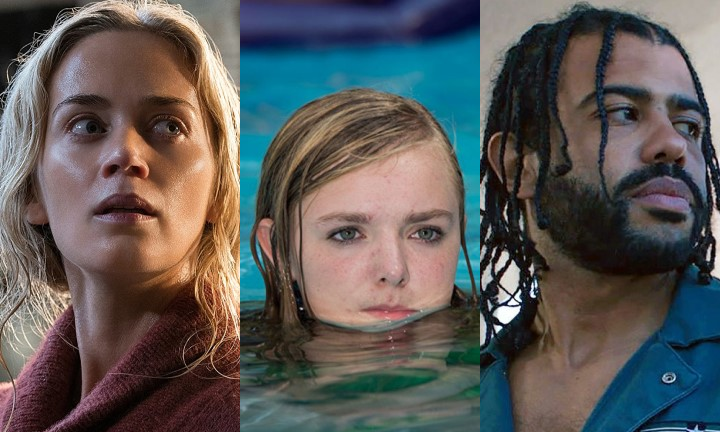
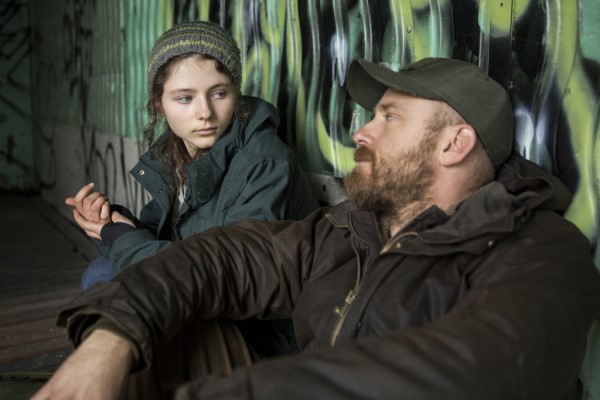
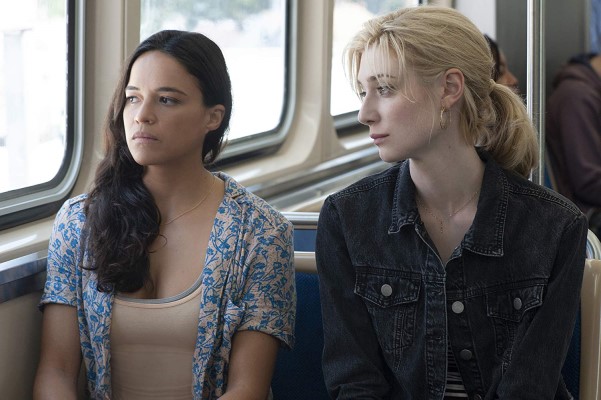
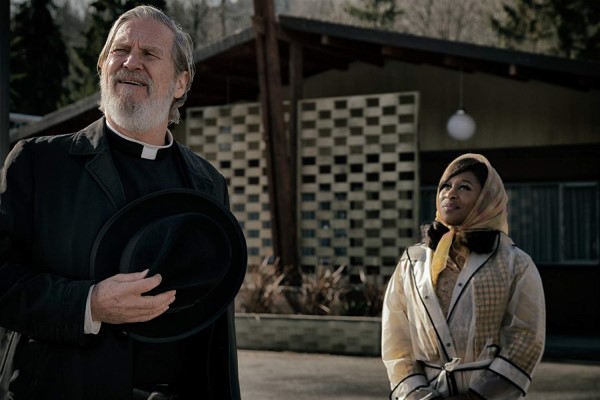
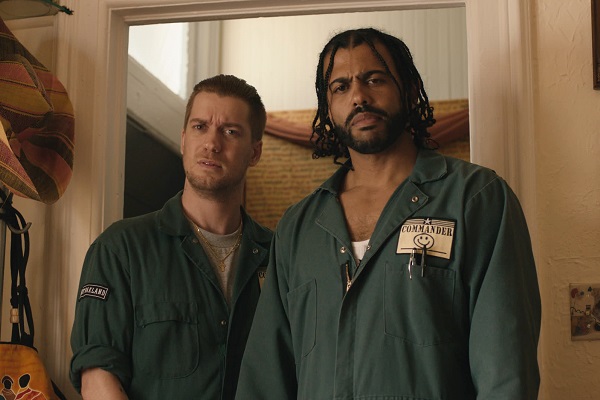
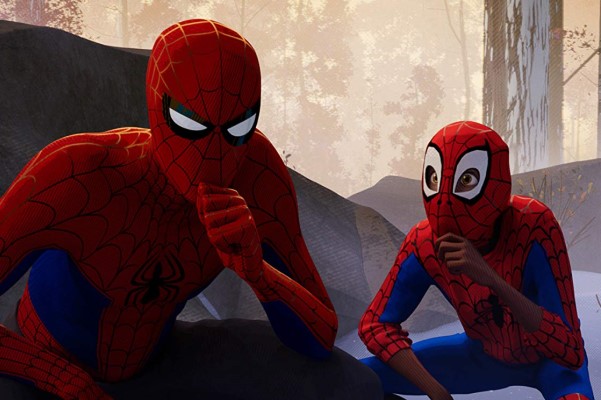
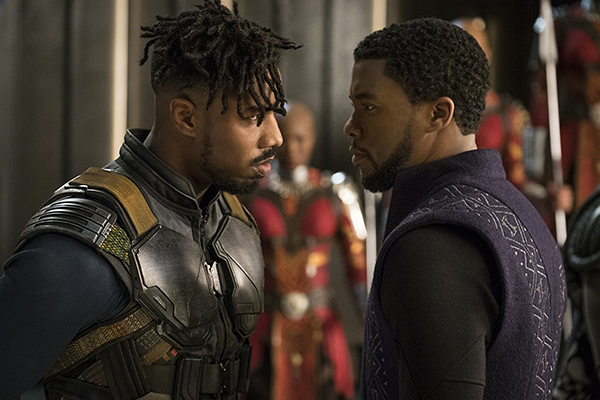
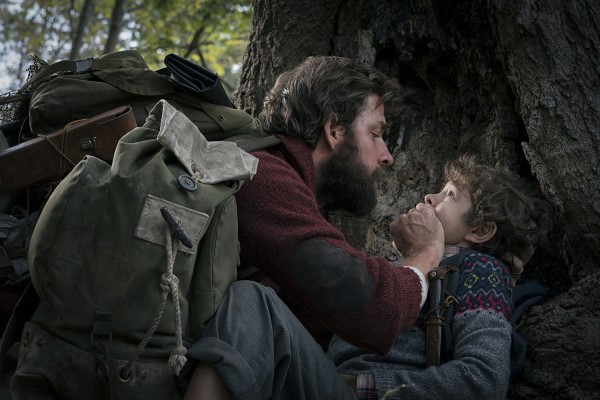
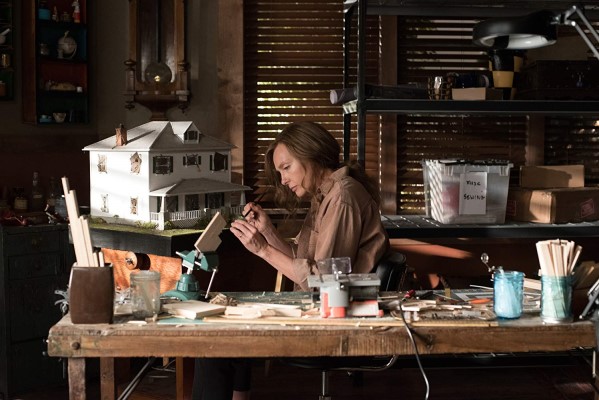
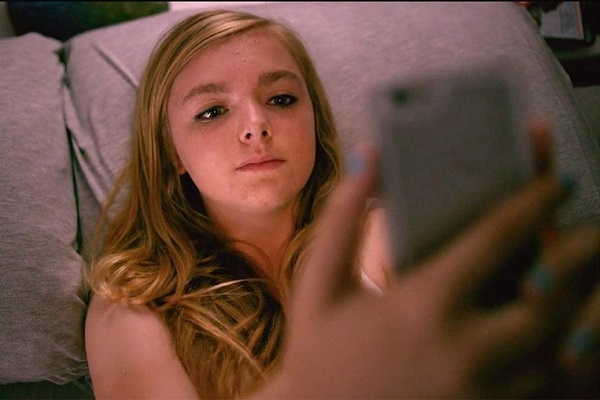
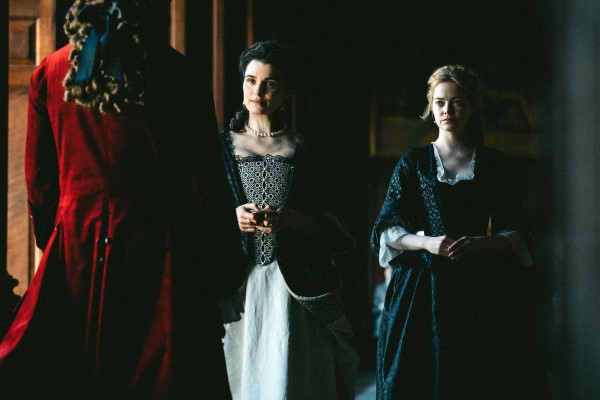
A Star is Born didn’t make the cut?!